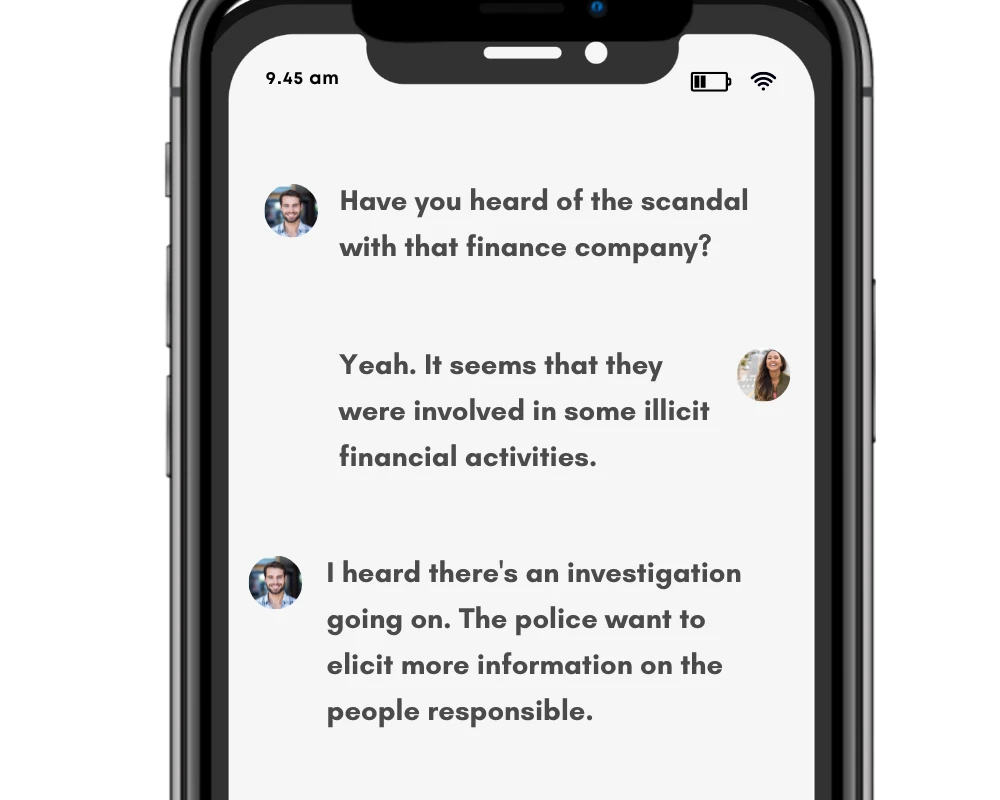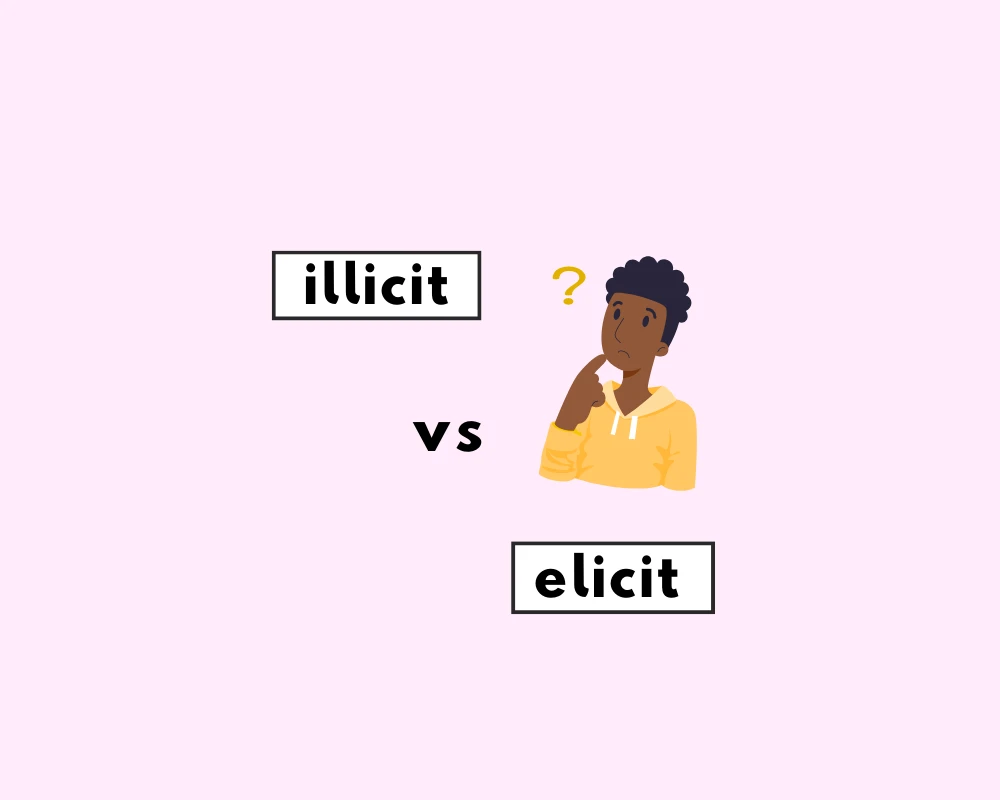
When to use “illicit” vs. “elicit”
English has words that sound the same but have absolutely nothing to do with each other in meaning, (read: illicit vs. elicit).
The secret society engaged in various illicit activities.
The interviewer hoped to elicit new information from the witness.
The shocking news did not illicit a strong reaction from him.
They were arrested for dealing in elicit substances.
Naturally, this creates confusion, and we can chalk it up to the philological phenomenon known as homophones, (i.e., words that sound the same but have different meanings).
Nevertheless, illicit and elicit, which are examples of homophones as they sound nearly identical, have no overlap in meaning and cannot be used interchangeably. Our advice (and the Grammarflex consensus, if you will), avoid conflating the two in writing.
“Illicit” vs. “elicit”, explained
- Illicit is an adjective that describes something as “not allowed by the law”, or as “not approved of by the normal rules of society”. An example of the latter is in the phrase, “an illicit love affair“, (which is not illegal, but generally frowned upon).
- Elicit is a verb that means “to get information or a reaction from somebody, often with difficulty”. Example: Hypnotism elicited his hidden fears.
| Examples with ‘elicit’ | Examples with ‘illicit’ |
|---|---|
| Her emotionally charged monologue elicited intense emotion from the audience. | The authorities cracked down on the illicit trade of stolen artifacts. |
Et voilà! There you have the difference. Illicit is an adjective that describes actions or events as unlawful or morally frowned upon, while elicit is a verb that refers to pulling out information or a response from someone.
The current understanding of both words adheres to their original definition, etymologically speaking. Illicit comes from the Latin illicitus, “not allowed, unlawful, illegal”, where elicit is from the Latin elicitus, meaning, “to draw out, bring forth or to light”.
‘Illicit’, used in sentences
| Examples: “illicit“, used in sentences |
|---|
| The authorities cracked down on the illicit trade of stolen artifacts.The nightclub was shut down due to its involvement in hosting illicit activities.The documentary exposed the harsh realities of illicit drug production in the remote region.The hacker was arrested for engaging in illicit online activities, including identity theft. |
‘Elicit’, used in sentences
| Examples: “elicit“, used in sentences |
|---|
| The detective’s skillful questioning was able to elicit a confession from the suspect.The artist’s paintings were known to elicit strong emotions and reactions from viewers.The comedian’s jokes never failed to elicit laughter from the audience.The teacher used thought-provoking questions to elicit thoughtful responses from the students.The survey was designed to elicit feedback from customers about their experience with the product. |
Synonyms of illicit
- illegal
- felonious
- forbidden
- lawless
- criminalized
- shameful
- unlawful
- unsanctioned
- prohibited
- criminal
- wrongful
“Illicit” (unlawful) starts with ‘I’ like “Illegal.” “Elicit” is the verb meaning to draw out or obtain.
Synonyms of elicit
- evoke
- inspire
- raise
- educe
- extract
- obtain
- procure
- disclose
- divulge
- unmask
Origin of illicit
c. 1500, from Old French illicite “unlawful, forbidden” (14c.), from Latin illicitus “not allowed, unlawful, illegal,” from assimilated form of in- “not, opposite of” (see in- (1)) + licitus “lawful,” past participle of licere “to be allowed”.
Origin of elicit
“To draw out, bring forth or to light,” 1640s, from Latin elicitus, past participle of elicere “draw out, draw forth,” from ex “out” (see ex-) + -licere, combining form of lacere “to entice, lure, deceive”.
Check out other commonly confused words
Sources
- “Illicit.” Merriam-Webster.com Dictionary, Merriam-Webster, https://www.merriam-webster.com/dictionary/illicit. Accessed 19 Aug. 2023.
- Harper, Douglas. “Etymology of illicit.” Online Etymology Dictionary, https://www.etymonline.com/word/illicit. Accessed 19 August, 2023.
- Harper, Douglas. “Etymology of elicit.” Online Etymology Dictionary, https://www.etymonline.com/word/elicit. Accessed 19 August, 2023.
Work Sheet
According to the post, what part of speech is the word “illicit”?
According to the post, what part of speech is the word “elicit”?
Which word means “to draw out or obtain information/a reaction”?
Which word describes something as “unlawful or not approved of by normal society rules”?
Based on the examples in the post, which sentence correctly uses one of the words?
The journalist tried to a direct answer from the politician.
The police raided a warehouse suspected of storing goods.
His sudden resignation is rumored to be linked to financial dealings.
The comedian’s performance failed to much laughter from the small crowd.
They discovered a secret network engaging in arms trading.
Frequently Asked Questions
What does ‘illicit’ mean?
+
What does ‘elicit’ mean?
+
Are ‘illicit’ and ‘elicit’ synonyms?
+
What is the main difference?
+
How are these words often confused?
+
Yash, D. "The Difference Between “Illicit” vs. “Elicit” Explained." Grammarflex, Jun 20, 2025, https://www.grammarflex.com/the-difference-between-illicit-and-elicit-explained/.











